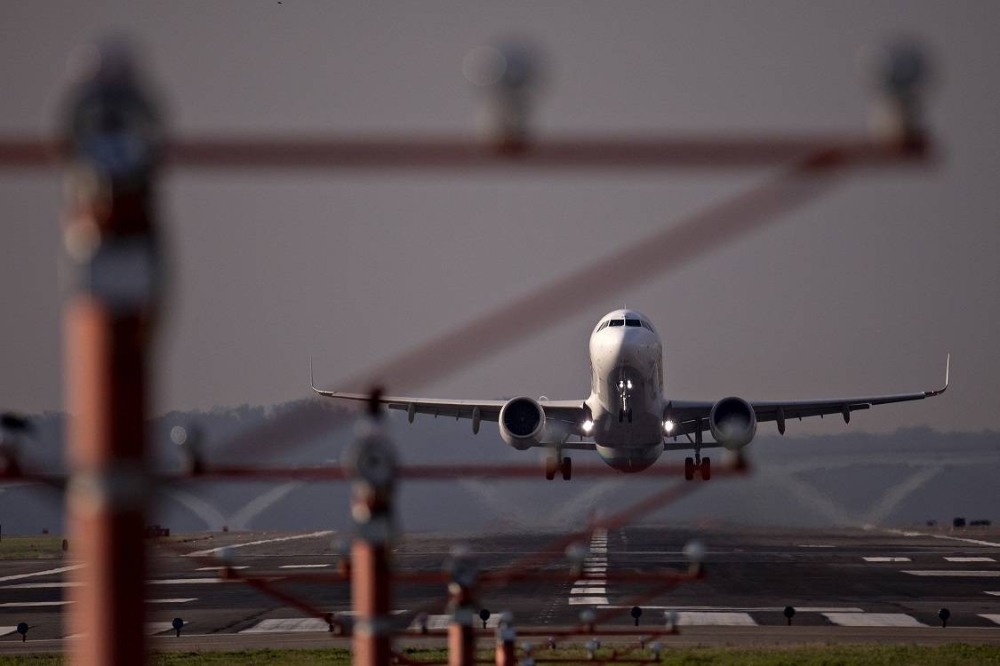Artificial Intelligence (AI) is transforming air travel in several key ways, making it more efficient and customer-friendly.
AI-driven chatbots and virtual assistants now help passengers with booking, check-in, and flight updates. Many top airlines have been extensively using AI-powered chatbots to assist travellers in real time.
Industry experts say AI-powered biometric systems (facial recognition, iris scans) will reduce the need for physical passports and boarding passes, speeding up security and immigration checks. Ultimately, it will reduce wait times at airports around the globe.
Artificial Intelligence analyses passenger data to offer personalised recommendations for seats, meals, and upgrades. Another incentive is that AI-driven tracking will be able to minimise lost luggage and automate baggage movement for faster transfers.
Recently, the World Travel & Tourism Council (WTTC) and Trip.com Group unveiled ‘Technology Game Changers: Future Trends in Travel & Tourism’ at ITB Berlin, spotlighting the innovations set to revolutionise the industry.
The report explores some six transformative technologies shaping the future across four major trends: digital technologies, financial technologies, future of mobility, and breakthrough innovations.
It suggests that by the end of the decade, AI agents won’t just automate travel searches and bookings – they could match human intelligence across many tasks, transforming travel and tourism as we know it.
According to WTTC, quantum computing could soon be solving problems beyond our wildest thinking. From optimising global air traffic in real-time with unprecedented efficiency, to unlocking the next frontiers of space travel and deep-sea tourism, bringing both closer to reality.
Supersonic flight is set to make a spectacular comeback, more than twenty years after Concorde retired. Boom Technology and United are gearing up to carry passengers at blistering speeds within the next four years.
Meanwhile, smart cities with driverless cars and advanced air mobility won’t just reshape today’s top destinations – they’ll open doors to places once thought unreachable, redefining the tourist experience for the travellers of tomorrow.
Julia Simpson, President & CEO, WTTC, said: “The travel and tourism sector is in the midst of a digital revolution. From AI-driven personalisation to advancements in aviation sustainability, innovation is reshaping how we explore the world.
“As travellers turn to social media, streaming platforms, and cutting-edge tech to inspire and book trips in real time, platforms like Instagram are shifting from selling products to selling experiences. Meanwhile, technology is unlocking new adventures off the beaten track.
“With innovation accelerating at an extraordinary pace, businesses that embrace these advancements today will be the industry leaders of tomorrow.”
Boon Sian Chai, Managing Director & Vice President of International Markets at Trip.com Group, added: “Travellers today expect planning and booking to be intuitive, efficient, and hyper-personalised.
“At Trip.com Group, we are pioneering AI-powered travel assistance, Super Apps, and innovations to cater to, and even exceed such expectations. This report is also an essential guide for businesses looking to stay ahead of rapid digital change.”
Key insights from the report include:
AI revolutionising travel: Some 94% of industry leaders see AI as mission-critical. AI-powered assistants like Trip.com’s TripGenie saw a 200% surge in usage in 2024, revolutionising trip planning and customer experiences.
Super Apps redefining seamless travel: A survey of nearly 8,000 travellers found 97% want a single platform integrating flights, hotels, activities, and payments, for a frictionless journey.
Greener travel takes off: From Virgin Atlantic’s first-ever 100% sustainable fuel transatlantic flight, to Port Miami’s expansion of shore power, the travel and tourism sector is advancing towards a more sustainable future.
Space tourism lifts off: Once a distant dream, commercial space travel is rapidly approaching reality, with infrastructure and demand accelerating at an unprecedented pace.
The report also underscores the critical need for investment in digital skills and regulatory frameworks to unlock the full potential of these technologies.
With 91% of travel businesses planning to increase their tech investments, the industry is on the brink of its most significant transformation since the dawn of the Internet.
Experts believe AI will make global air travel more connected, efficient, and environmentally friendly, leading to shorter travel times, lower costs, and (possibly) enhanced safety.
However, they caution that addressing privacy, cybersecurity, and regulatory challenges will be essential for smooth implementation.
Business
AI shakes up air travel; global travel and tourism in midst of digital revolution
Beyond the Tarmac

A passenger aircraft takes off from an airport in Virginia. Artificial Intelligence is transforming air travel in several key ways, making it more efficient and customer-friendly. AI-driven chatbots and virtual assistants now help passengers with booking, check-in, and flight updates.

